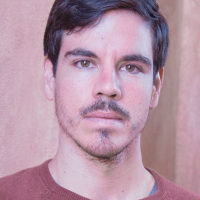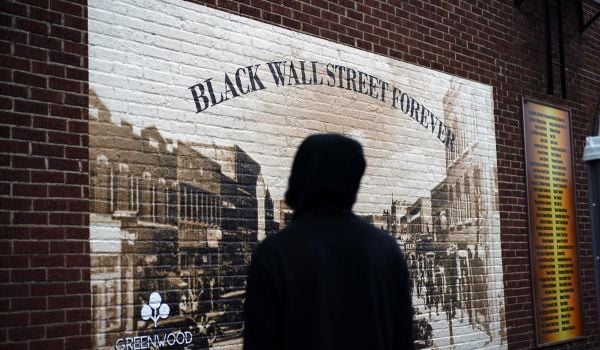Even amid the media’s best efforts to profile female entrepreneurs, Tracy Saville notices a marked fascination with the well-educated and ultra-driven.
And that’s all fine, but when lumped together as a representation of women working in startups, it doesn’t exactly paint an accurate picture of what’s going on in cities around the U.S.
“I’m 50 […] I’ve got a 25-year-old son, I’ve got issues that a 50-year-old woman has — but I’m still expected to be a particular type of person,” she says. To her, fitting that “type” means “I shouldn’t have outside interests, my startup should be the only thing I do, I should be not sleeping for three days straight” while working on her project to show her commitment to success.
Saville is working on a new artificial intelligence product, and she’s also the co-founder of a new Sacramento startup incubator that was originally based out of Los Angeles, called Fourthwave. They’re looking for tech projects in big data, agriculture, civic/government, health services and other industries, with a company ownership that’s at least 50 percent women; there’s an emphasis on entrepreneurs of color too.
To her, the archetype of the woman who sacrifices everything for her prototype is actually a rare one. She wants to shift the startup zeitgeist into one where men don’t judge women who aren’t working ridiculous hours to get the job done. She remembers one of her advisers getting an email from her venture capitalist brother, suggesting she give a cold shoulder to Saville’s plan to only court female investors because they wouldn’t “get any points” for attracting what he described as “female money.”
Or, the time a 67-year-old venture capitalist took her out to dinner in San Francisco, and told her everything she needed to do to become successful. That included becoming “more demure” — and he offered to help her achieve that (and other more “successful” traits) if she paid him a small service fee of $15,000 a month.
“I know women who were trying to raise capital but [were] laughed out of business meetings because they were three months pregnant,” she says. “I wouldn’t want a 12-year-old girl today to have to go through what I went through.”
Countrywide, about 80 percent of active entrepreneurs are white, and 65 percent are men, according to a 2017 report by the Kauffman Foundation. But that’s changing, as business leaders age out and the U.S. shifts toward greater racial and ethnic diversity. In Sacramento, the change brought on by that trajectory is already evident; last year it was listed as the top city for minority entrepreneur growth in the country by Forbes.
But on top of having women and entrepreneurs of color in leadership positions, Fourthwave insists applicants have to commit to what Saville calls “conscious leadership.” It’s inspired by Whole Foods founder John Mackey, who wrote a book called “Conscious Capitalism: Liberating the Heroic Spirit of Business” that extols a raising of the bar on business ethics that also purports to bring in more profit over time.
Fourthwave cites a multitude of research that backs this model, with a focus on women leaders. Companies with women in leadership roles produce higher returns on equity, more robust stocks and higher company valuations, according to an October 2016 report by Credit Suisse.
“We’re finding that those going out and pursuing conscious leadership values are outperforming on a ROI basis, employees stay longer, the value chain of vendors is happier — every metric of the company is better when we achieve that,” she says.
Fourthwave is taking the move to Sacramento from Los Angeles after one year as a chance to tweak the incubator in some ways. Nancy Perlman, Fourthwave’s original founder, says the L.A. program was just a pilot run, but they were able to provide pitch assistance to startups like Blue Fever, a Netflix-like service that streams media made by, or featuring, women in key roles. As they go forward, Perlman and Saville want to shift away from the traditional, high-speed boot camp model of most incubators, replacing pitch sessions with dinner parties where investors take a seat at the table and converse as community innovators first, business partners second.
Toward that end, it received a $25,000 grant from the Rapid Acceleration, Innovation and Leadership in Sacramento (RAILS) program to help get up and running, as part of Sacramento’s goal to become the U.S. “capital of entrepreneurship.”
Compared to Los Angeles, Sacramento is, to Saville, a smaller city with a higher prevalence of the old guard. “It’s the philanthropic, banking, capital sectors, housing construction sectors — a city for bigger business and employer sectors that have predominantly been controlled by white middle-aged men,” she says. “They’re at that point of aging out but still control quite a bit of the business community.”
That’s why for this first cohort, they’re aiming for quality over quantity when it comes to how they’ll determine whether or not they’ve made an impact. “If we could even help a fourth of our cohort to achieve positive capital outcomes, with capital that wasn’t readily available or wasn’t available at all … that’d be a success.”
The Equity Factor is made possible with the support of the Surdna Foundation.

Johnny Magdaleno is a journalist, writer and photographer. His writing and photographs have been published by The Guardian, Al Jazeera, NPR, Newsweek, VICE News, the Huffington Post, the Christian Science Monitor and others. He was the 2016-2017 equitable cities fellow at Next City.













